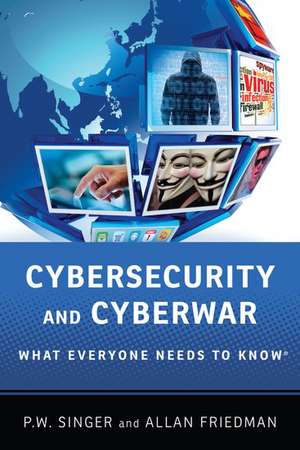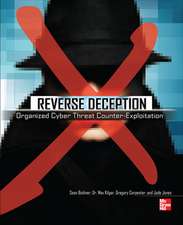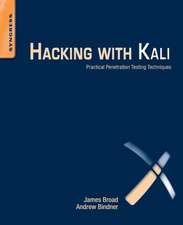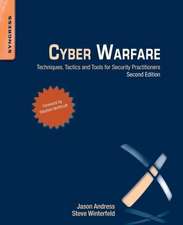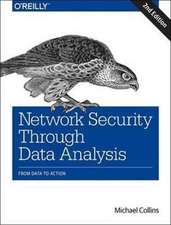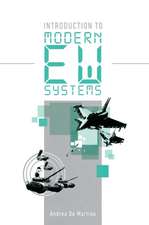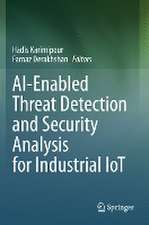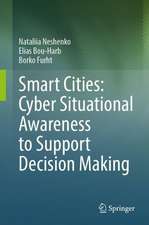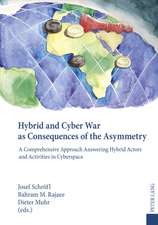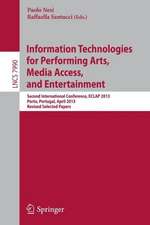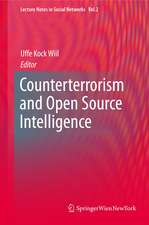Cybersecurity and Cyberwar: What Everyone Needs to Know®
Autor Peter W. Singer, Allan Friedmanen Limba Engleză Paperback – 6 feb 2014
Dependence on computers has had a transformative effect on human society. Cybernetics is now woven into the core functions of virtually every basic institution, including our oldest ones. War is one such institution, and the digital revolution's impact on it has been profound. The American military, which has no peer, is almost completely reliant on high-tech computer systems. Given the Internet's potential for full-spectrum surveillance and informationdisruption, the marshaling of computer networks represents the next stage of cyberwar. Indeed, it is upon us already. The recent Stuxnet episode, in which Israel fed a malignant computer virus into Iran's nuclear facilities, is one such example. Penetration into US government computer systems by Chinesehackers-presumably sponsored by the Chinese government-is another. Together, they point to a new era in the evolution of human conflict. In Cybersecurity: What Everyone Needs to Know, noted experts Peter W. Singer and Allan Friedman lay out how the revolution in military cybernetics occurred and explain where it is headed. They begin with an explanation of what cyberspace is before moving on to discussions of how it can be exploited and why it is so hard to defend. Throughout, they discuss the latest developments in military and security technology. Singer and Friedman close with a discussion of how people andgovernments can protect themselves. In sum, Cybersecurity is the definitive account on the subject for the educated layman who wants to know more about the nature of war, conflict, and security in the twenty first century.
| Toate formatele și edițiile | Preț | Express |
|---|---|---|
| Paperback (1) | 52.04 lei 10-16 zile | +21.50 lei 4-10 zile |
| Oxford University Press – 6 feb 2014 | 52.04 lei 10-16 zile | +21.50 lei 4-10 zile |
| Hardback (1) | 239.52 lei 31-37 zile | +74.46 lei 4-10 zile |
| Oxford University Press – 23 ian 2014 | 239.52 lei 31-37 zile | +74.46 lei 4-10 zile |
Preț: 52.04 lei
Preț vechi: 75.98 lei
-32% Nou
9.96€ • 10.36$ • 8.22£
Carte disponibilă
Livrare economică 14-20 martie
Livrare express 08-14 martie pentru 31.49 lei
Specificații
ISBN-10: 0199918112
Pagini: 320
Dimensiuni: 142 x 208 x 23 mm
Greutate: 0.36 kg
Editura: Oxford University Press
Colecția OUP USA
Locul publicării:New York, United States
Recenzii
This is the most approachable and readable book ever written on the cyber world. The authors have distilled the key facts and policy, provided sensible recommendations, and opened the debate generally to any informed citizen: a singular achievement. A must read for practitioners and scholars alike.
In confronting the cybersecurity problem, it's important for all of us to become knowledgeable and involved. This book makes that possible -- and also fascinating. It's everything you need to know about cybersecurity, wonderfully presented in a clear and smart way.
If you read only one book about 'all this cyberstuff,' make it this one. Singer and Friedman know how to make even the most complicated material accessible and even entertaining, while at the same time making a powerful case for why all of us need to know more and think harder about the (cyber)world we know live in.
Singer and Friedman do a highly credible job of documenting the present and likely future risky state of cyber-affairs. This is a clarion call.
I loved this book. Wow. Until I read this astonishing and important book, I didn't know how much I didn't know about the hidden world of cybersecurity and cyberwar. Singer and Friedman make comprehensible an impossibly complex subject, and expose the frightening truth of just how vulnerable we are. Understanding these often-invisible threats to our personal and national security is a necessary first step toward defending ourselves against them. This is an essential read.
Singer and Friedman blend a wonderfully easy to follow FAQ format with engaging prose, weaving explanations of the elements of cybersecurity with revealing anecdotes. From the fundamentals of Internet architecture to the topical intrigue of recent security leaks, this book provides an accessible and enjoyable analysis of the current cybersecurity landscape and what it could look like in the future.
Cybersecurity and Cyberwar: What Everyone Needs To Know aims to demystify "cyber stuff" and arm readers - from the everyday Internet user to the policymaker - with the necessary tools to better understand cybersecurity and the threats that face it ... Essential reading for anyone interested in national security.
More than anything else, the book is a reality check If you're completely ignorant about malware and cyberattacks, this is the book for you. And if you think you know a lot about these topics, this is still the book for you. It's thorough, exhaustive, and easy to read. And it eloquently simplifies every complicated issue, challenging widespread notions about cybersecurity and cyberwar. In this extremely approachable book, Singer and Friedman may have very well told us all we need to know about cybersecurity and cyberwar. Now it's up to us all to work together to make the Internet a better place.
The easy-to-read style, sprinkled with colloquial language, humor, and anecdotes, will make the book particularly engagingPerhaps most importantly, this book will be a significant contribution to building a deeper understanding and a common base of knowledge around cybersecurity issues. This, in turn, may serve as a foundation for enabling policymakers, scholars, and citizens to begin building a crucial dialogue and much-needed conversation around how to approach, understand, and deal with the important policy implications of cybersecurity and cyberwar.
A sobering indictment of the current US cybersecurity policy, which has so far been characterized by a dangerous mix of ignorance and shrill hysteria over oft-warned-about but not-yet-realized "cyber Pearl Harbor" catastrophes ... Singer and Friedman cut through this alarmist rhetoric, demystifying technical jargon with simple questions like "How Does The Internet Actually Work?"; "What Is Hacktivism?"; and "Do We Need A Cyberspace Treaty?" The result is an honest, well-researched appraisal of the impact of cyber threats, and the potential solutions for cybersecurity.
Lawyers, consider this your official warning about cybersecurity ... A thorough, comprehensible, and sometimes entertaining explanation of the digital revolution, how we got here, and what lies ahead.
An impressively comprehensive guide to one of the least understood arenas of modern life.
In writing Cybersecurity and Cyberwar: What Everyone Needs To Know, authors Peter W. Singer and Allan Friedman do what few cybersecurity and war scholars do: They tie together the history of the generative Internet, and its foundations in curiosity and experimentation, with the politico-military cyber security community housed in government. They connect the dots between technological traits and their insecurities. And they tell the stories of the people, not just the machines. In the book, Singer and Friedman break down to building blocks what Internet and the World Wide Web are made of, then use those to build back up to sophisticated concepts and information ... At its core, Cybersecurity and Cyberwar makes the point that cybersecurity risk is human risk.
exposes serious ignorance and incompetence in surprisingly high places.
Though it's concise, at 300 pages, the guide covers cyber issues, both personal and global, with easy-to-understand explanations and engaging stories.
The pace of global digitization, and the widespread lack of understanding of related security risks, is a ticking time bomb ... If you don't know your asymmetric cryptography from your spear phishing, this is a thoughtful introduction.
Notă biografică
Peter W. Singer is a Senior Fellow and the Director of the 21st Century Defense Initiative at the Brookings Institution.Allan Friedman is a Fellow in Governance Studies and Research Director of the Center for Technology Innovation at the Brookings Institution.
